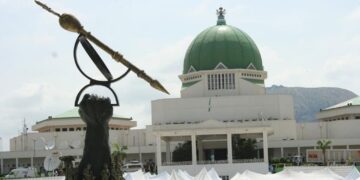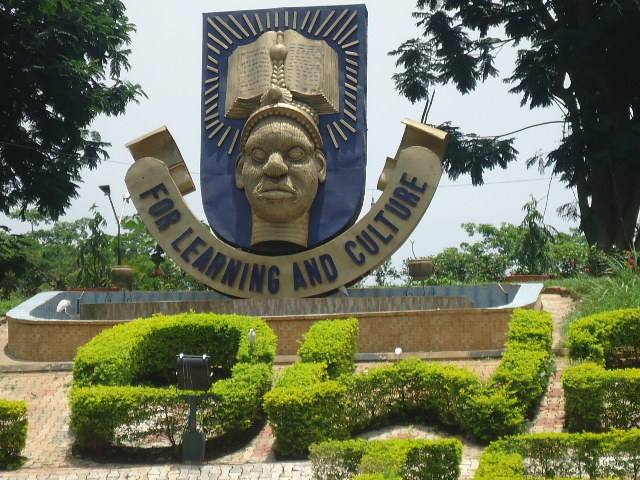[ad_1]
Several indicators are exemplified when one uses symbolic or mathematical logic to analyse the “Leader with ego.” He is boisterous, thrives on self-thought-out or imagined deductive assumptions and vainglory. He is the chief executive of his environment and lacks the moral tie for genuine group harmony or group activated or value-adding inspiration. He thrives on the adulation of hangers-on and bootlickers. They flatter him for patronage or “a piece of the action.”
He sees people as objects for his inordinate and selfish ambitions. As far as he is concerned, profit and shareholder value, guaranteed by individual citizens are signposts of his success. He likes to control and give orders and his people must obey them. The leader with ego never gives members of his team the glory of success. He takes all the glory. He appropriates to himself group successes.
Managing people for profit and shareholder value (as opposed to stakeholders’ value or citizen’s value) is not leadership. Management is control. It is the interplay of three constraints namely, quality, time and money. Whichever takes priority, the other two suffer. For instance, it takes more time and more money to create quality.
The big difference with leadership is that, if you push the people, you really cannot accurately and correctly discern the way they will go and which way they are thinking. But if you lead them and get them to follow you, then you have the value-adding skill that people should have to be a leader.
Power comes when the people you are leading support you voluntarily. When that support comes to you, you have the power as the leader. But if you start to arrogate that power, then you will get less support from the people.
Leaders are failing today because they took all the powers. They did not give it back to the people they were leading. What is the strength that creditably enables change apart from frameworks, charts, barrage of data and metrics? It is people focus that galvanizes individual endowments and abilities of citizens at all levels.
In our efforts to achieve outstanding performance, build share and create wealth, we must be creative, intuitive and very dynamic. These three are embedded in insight.
The people-focus strategy guarantees an intuitive grasp which enables well thought-through, pragmatic and practical perspective of prospective plans for growth and development. When you are natural and intuitive, you achieve far reaching results or outcomes. Flexible and adaptive talents guarantee creative and innovate solutions.
What is our take-out from all these: our drive for beneficial progress must rest on the pillars of creativity and collective intuitive interface. A leader without ego must therefore stimulate the eminently practical and refreshingly clear creative process. The leader with ego confuses us all the time, with fallacious economic numbers.
Nigerians from various tribes have always been known to be imaginative entrepreneurs with bold, brilliant, dynamic and innovative ideas. It is worthy of note that these “original” ideas emanate from natural talents, insight and creative intuition.
Leadership is the most valuable commodity but also the rarest. It is endowed through that discipline of self-denial. You cannot buy it and you cannot sell. You either have it or you do not.
Let us look at the psychology of culture and place it side by side with leadership. Culture is the umbrella of unwritten norms that guide behaviour. Culture guides the people as to what is right or wrong. There are two key values behind culture. It guarantees enhanced productivity and ensures peace in societies. If properly harnessed, it promotes violence-free societies.
But how people react in different societies or even communities depends on how they cope with five dilemmas, among others namely; hierarchy versus equality, individualism versus collectivism, performance orientation versus caring for others about quality of life, uncertainty avoidance versus not worrying about uncertainty and flexibility versus discipline.
Please, note that it is the people at the bottom of the social pyramid that determine the “power distance”. In other words, they are the ones that accept or not accept what I will call “parasitic hierarchy” as we have it in Nigeria today.
It is the people that must refuse to accept leadership with ego whose unique signpost, as we all know, is greed. Some of the multiplier effects of greed include but not limited to; tribal hegemony, short-sighted group interests, the well-known cliché of “what is in it for me?” and procreating for unbelievable advantage or reason.
The era of the “Alpha male human leader” or the domineering aggressive and self-centred opportunist is gone, and should be gone for good.
Enthusiasm for development and progress in Nigeria can and will be ratcheted-up through this much-needed culturally unique and specific leadership style, the leader without ego.
Our leader without ego, must be altruistic, adaptive, strong but flexible, connected with the people, pushes from behind, promotes a Nigerian society where all citizens must take joy in achieving success. He must be a benevolent leader who sees the Nigerian society as an extended family not an available field for exploitation. He must also value consensus-building like our very respectable village elders (in Nigeria) who seek skills as well as unique talents and make them work for the good of all.
The dimensions for this culturally diverse leadership prototypes are centred around “teeming with respect”. These dimensions totally and absolutely reject the conflict inducer, self-centred, dominant and status conscious leader. It embraces the constructive, principled, and synergistic leader who is virtuous, imaginative, authentic, honest and adaptable. The leader who has integrity and is expressive; an honest communicator.
The leader that should be at the helm of affairs in Nigeria must be a coach not a captain and he must not promote a robot mentality or mindset.
Our government, as the coach and not captain, must lead the value-enabling crusade to ingrain in the national psyche the indispensability of education, for example, tailor-made education that will ensure a very well thought-through and genuine strategy for progress that guarantees a Unified Value System. This value system must be put together by all stakeholders in the cultural and economic sectors. Value creating and value-view must be the mindset of all citizens. Our watchword must also include the work ethic.
According to a renowned Japanese strategist, Kenichi Ohmae, every citizen must be constantly reminded that the onus is on all of us to hammer down every nail that sticks up. He pointed out that “because the Japanese education system emphasizes group harmony, it discourages heroes and super performers. No genius is permitted to skip grades or advance faster than others. Gifted children are taught to use their extra margin of intelligence to smooth-out interpersonal relationships and help their slow-moving classmates.
Individualism is antithetical to social harmony. The individualist or leader with ego can never grow or develop a nation successfully. Individualism is fundamental dissonance and a very distressing one in progressive cultural evolution.
Group harmony is an all-important pillar for genuine national leadership not the governance of “fly-by-night” wealthy but empty politicians. It checkmates selfish actions of those who appeal to citizens’ emotions rather than their reason. It is indeed a sine-qua-non for growth and ever-moving-forward progress.
For our economy to thrive and for us to have meaningful and tangible progress, there must be a distinct shift from a “Me-centric” to a “we-centric” culture or the People Centric Culture. Genuinely throwing-up skills and opportunities for meaningful life can be combined to salvage our tomorrow.
Research has established with incontrovertible proofs that the combination of a vibrant economic model with the vibrant culture model, will definitely deliver enhanced productivity.
This is only possible in a country where all citizens can discover their gifts, develop the gifts, share their gifts and most importantly, be recognized and appreciated for doing so.
A country that validates the worth of her citizens and makes them what they are meant to be; creates a common purpose that delivers great value. We are all stakeholders not just the few loyal ones. The leader without ego is the steward of the precious life of every citizen. This common vision and purpose will have a dramatic impact on our country’s development and progress. The profound truth is that, this collective vision of every citizen having a sense of significance grows numbers, performance and profit.
A people-centric leadership garnished with continuous improvement is a critical foundation for sustainable and ever-progressing growth. People, purpose and performance will definitely create value for all citizens.
We can progressively change Nigeria through recognition, celebration and appreciation of the goodness in our people.
We utilize people’s hands and pay them for it but we can get their heads and hearts for free, if every citizen knows that his life matters.
It is of profound importance that the leader without ego recognizes, appreciates and celebrates the lives they have the privilege of leading. We must sustain and build this culture.
The x-factor, the common denominator or the pointer of the leader without ego is not his intelligence quotient or IQ, not his privilege, position or title but his connection with the people. He must be ready always to take the tactical bruise on his ego by recognizing and appreciating other people’s reality, ensuring an open climate of ideas in order to ensure creativity and innovation flow from connection with people. He must also, as mentioned earlier, have credibility by way of passion and enthusiasm.
In conclusion, if our government must provide us with peace and prosperity, leaders must be stewards of the lives of citizens. Majority of Nigerians wonder why they should continue in a country that does not appreciate them whereas their lives have tremendous value. They have been living lives of stress instead of joy and fulfilment; no wonder the prevalence of heart attacks and other health challenges. The individual Nigerian has a role to play. His role can make a difference. He can be passionately involved, engaged, committed and a value-adding participant in creating wealth and ensuring progress. The leader without ego can promote vitality and enthusiasm in the land.
People-centric leadership can profoundly change Nigeria.
YOU SHOULD NOT MISS THESE HEADLINES FROM NIGERIAN TRIBUNE
PICTORIAL EXPLAINER: How To Identify Fake New Naira Notes
The Central Bank of Nigeria (CBN) has released security features to help identify fake new naira notes. According to CBN’s template, the Security features to look out for are the following…
Ondo Councils’ Workers Shut Down Assembly Over LG Autonomy
LOCAL government workers under the aegis of Nigeria Union of Local Government Employees (NULGE), Ondo, on Tuesday, stormed the State House of Assembly, threatening a showdown with the lawmakers over the signing of local government autonomy…
FG To Discontinue Cash Withdrawal From Public Accounts
The Federal Government is putting the final touches to all necessary measures to stop cash withdrawal from federal, state, and local government accounts. The Director/Chief Executive Officer of the Nigerian Financial Intelligence Unit (NFIU), Modibbo Hamman Tukur, revealed…
Reps Probe Crude Oil Sales Over $2.4bn Revenue Loss
The House of Representatives on Tuesday unveiled plans to investigate the allegation bothering on the alleged loss of over $2.4 billion in revenue accruing from the illegal sale of 48 million barrels of crude oil export from 2014 till date…
Emefiele/DSS Tango: Falana Asks Judiciary To Treat Civil Liberty Cases Equally
LEADING rights lawyer, Mr. Femi Falana, on Tuesday addressed the controversial move by the nation’s secret police to arrest and detain the embattled Governor of the Central Bank of Nigeria (CBN), Godwin Emefiele…
EDITORIAL: CBN’s New Cash Withdrawal Limits
As a follow-up to its redesign of the N200, N500, and N1000 banknotes, the Central Bank of Nigeria (CBN) recently announced a new policy that mandates deposit money banks and other financial institutions to ensure that…
[ad_2]






